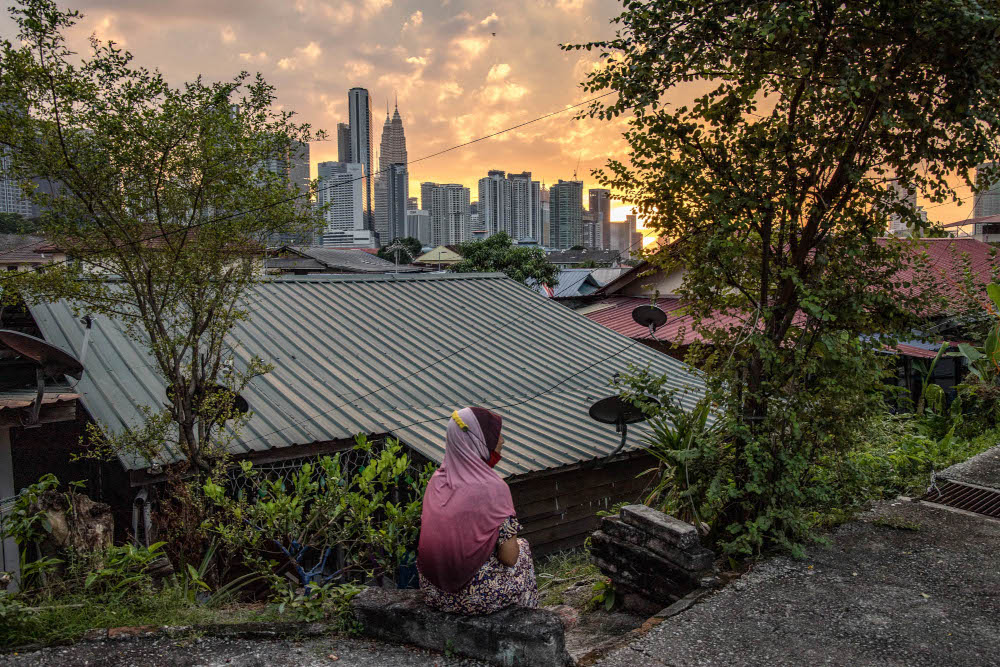EPF chairman Tan Sri Ahmad Badri Mohd Zahir said this will not only be detrimental to individual livelihoods, the socio-economic landscape of the country and its fiscal health will also be challenging. — Picture by Firdaus Latif
KUALA LUMPUR, Nov 23 — The Employees Provident Fund (EPF) has expressed concern that the majority of its members are now at risk of falling into old-age poverty as Covid-19 related withdrawals have caused insufficient savings to live out a dignified retirement life.
EPF chairman Tan Sri Ahmad Badri Mohd Zahir said this will not only be detrimental to individual livelihoods, the socio-economic landscape of the country and its fiscal health will also be challenging.
The situation, he said, is that 48 per cent of EPF members below the age of 55 have critically low EPF savings.
This is a 28 per cent increase in members reaching critically low EPF savings from before the pandemic.
“With Malaysians’ life expectancy at 75, and assuming EPF members start to draw down their retirement savings at age 55, the savings would need to be sustainable for at least 20 years.
“In regards to that, the median savings for all EPF members below age 55 stands at RM13,000, which translates to RM54 a month for their retirement years,” he said in his speech at the 9th International Social Wellbeing Conference (ISWC) 2021, held both virtually and physically today.
Ahmad Badri further said the median savings of EPF members at age 54 is at RM38,000, which translates to RM159 a month for the next 20 years, and in order for members to recover the loss of savings from the Covid-19 related withdrawals, they would need to work an extra four to six years.
As of October 31, 2021, a total of RM101.1 billion have been withdrawn under i-Lestari, i-Sinar, and i-Citra.
This is equivalent to 22 per cent of the total RM530 billion of the government stimulus programme as support for Malaysians as a whole, he said.
On the issue of adequacy, Ahmad Badri said social protection is a human right for all which includes all forms of work, formal and informal sectors.
Roughly, only three out of ten adults in Malaysia are covered by any form of social protection, such as the government pension scheme and EPF coverage.
“We are looking at only 7.5 million out of the 23.5 million working-age population currently residing in the country.
“The pandemic has also shifted the employment landscape towards informality. The growth of the self-employed and informal bracket is expected to increase from the current 5.7 million to 8.8 million in 2040,” said Ahmad Badri.
To address these issues, he said the country would need far-reaching solutions covering an effective safety net programme, comprehensive life-cycle social protection systems, robust labour market and wage policies, sustainable economic growth, reskilling and upskilling of labour force, as well as policies to encourage automation and digitalisation to help increase productivity.
“In this context, the EPF would like to contribute to improving the wellbeing of the people. We are truly supportive of the government’s Budget 2022 initiative to extend the i-Saraan programme to include those from age 55 to 60.
“This will make i-Saraan more attractive to those in the informal sector to save for their retirement,” he said.
The Caruman Sukarela Insentif Suri, or i-Suri, which has been integrated with the Social Security Organisation (Socso) and renamed “Kasih Suri Keluarga Malaysia”, meanwhile, gives housewives and widows registered under the e-Kasih system to gain access to social security. — Bernama

